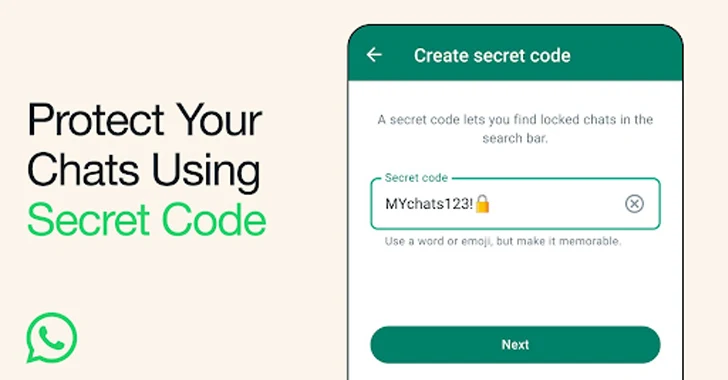
Meta-owned WhatsApp has launched a new Secret Code feature to help users protect sensitive conversations with a custom password on the messaging platform.
The feature has been described as an “additional way to protect those chats and make them harder to find if someone has access to your phone or you share a phone with someone else.”
Secret Code builds on another feature called Chat Lock that WhatsApp announced in May, which moves chats to a separate folder of their own such that they can be accessed only upon providing their device password or biometrics.
By setting a unique password for these locked chats that are different from the password used to unlock the phone, the aim is to give users an additional layer of privacy, WhatsApp noted.
“You’ll have the option to hide the Locked Chats folder from your chatlist so that they can only be discovered by typing your secret code in the search bar,” it added.
The development comes weeks after WhatsApp introduced a “Protect IP Address in Calls” feature that masks users’ IP addresses to other parties by relaying the calls through its servers.
It also follows calls by the French government urging ministers, secretaries of state, and cabinet members to refrain from using popular messaging apps like WhatsApp, Signal, and Telegram in favor of homegrown alternatives like Tchap (based on the Matrix protocol) and Olvid by December 8, 2023.
The news, which was first reported by Le Point, cited a circulated document that claimed: “these digital tools are not devoid of security vulnerabilities and therefore do not ensure the security of conversations and information shared through them.”
In response, Meredith Whittaker, president of Signal, hit back at the French government’s decision, stating, “this claim is not backed by any evidence, and is dangerously misleading esp. coming from gov.” Will Cathcart, the head of WhatsApp, concurred, saying, “we are of the same opinion.”






